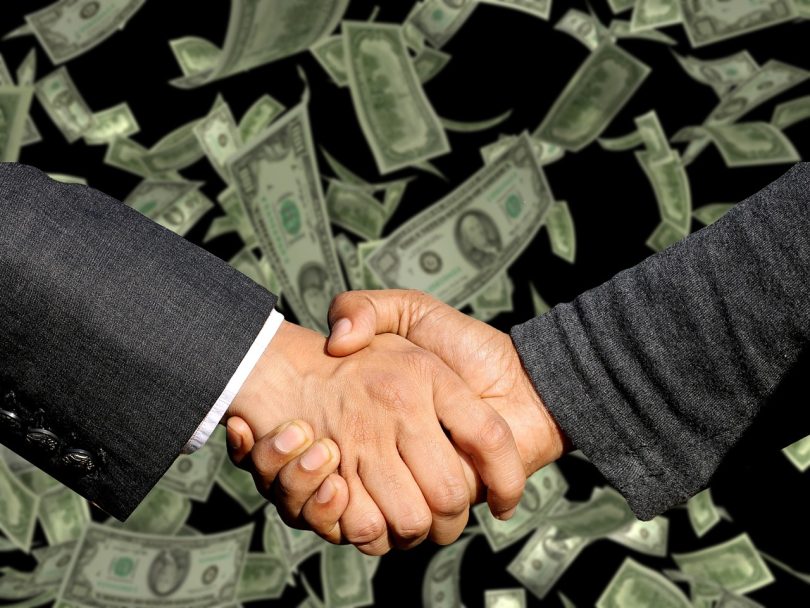Regrettably, you have discovered that you have been defrauded by a fraudulent website. What should you do next?
Firstly, do not lose hope.
If you suspect that you have been scammed, the initial step should be to request a refund. This is the simplest and most effective way to ascertain whether you are dealing with a legitimate company or scammers. Unfortunately, recovering funds from scammers is not as straightforward as simply requesting a refund.
The procedure and likelihood of obtaining your money back differ depending on the payment method you utilized.
- PayPal: Refunds are typically processed within a reasonable timeframe.
- Debit card/Credit card: Refunds may take several business days to process.
- Bank transfer: Refunds can take several business days to process.
- Wire transfer: Refunds may take several business days to process.
- Google Pay: Refunds are typically processed within a reasonable timeframe.
- Bitcoin: Refunds may take several business days to process.
PayPal
If you utilized PayPal for your transaction, you have a strong likelihood of recovering your funds in the event of a scam. On their website, you can initiate a dispute within 180 calendar days of the purchase date.
To file a dispute, the following conditions must be met:
1. Order Not Received: If you ordered from an online store and the item has not arrived, PayPal will provide a full refund if the seller is unable to provide proof of shipment or delivery.
2. Misrepresentation of Item: If the scammer sent you a completely different item than what you ordered, such as a PlayStation 4 instead of a PlayStation controller, PayPal will grant a full refund.
3. Misrepresentation of Product Condition: If the product description on the product page misrepresented the item’s condition, such as stating it as brand new when it has obvious signs of use, PayPal will provide a full refund.
4. Missing Parts or Features: If the item you received is missing essential parts or features that were not disclosed during the purchase process, PayPal will grant a full refund.
5. Counterfeit Product: If the product you received is a counterfeit version that was sold as genuine, PayPal will provide a full refund.
Credit Card or Debit Card
If you have made an online purchase using a credit or debit card, the most advisable course of action is to initiate a dispute with your bank. Locate the section dedicated to ‘disputed transactions’ or inquire about the ‘chargeback’ process. It is important to note that this process can be intricate, as illustrated by the comprehensive infographic provided by Chargebacks911.

Chargebacks: A Consumer Protection Mechanism?
Chargebacks are a consumer protection mechanism that enables individuals to dispute purchases made online. If the goods or services received are faulty, not provided, or not delivered as promised, the consumer can initiate a chargeback request. The bank initiates a refund to the consumer’s account if the claim is valid.
The timeframe for initiating a chargeback is 120 days from the date of payment or the date the consumer becomes aware of the issue.
For consumers residing in the United Kingdom, Section 75 of the Consumer Credit Act 1974 provides additional protection. This section extends the chargeback period to 120 days from the date of payment, regardless of whether the consumer becomes aware of the issue within that timeframe.
Section 75 specifically applies to purchases made with credit cards exceeding £100 and falling within the range of £100 to £30,000. If the consumer does not receive the item ordered or if the item is significantly different from what was described, they can request a refund under Section 75.
Key differences between chargebacks and Section 75 include:
- Chargebacks: Are voluntary requests initiated by the consumer.
- Section 75: Are enshrined in law and apply automatically to purchases made with credit cards within the specified range.
Consumers should exercise caution when using third-party payment platforms like PayPal when making purchases with credit cards. These platforms may invalidate the consumer’s right to claim under Section 75. For further information, please refer to the official website of Scamadviser.
Bank Transfer
Which.co.uk provides the following guidance on recovering funds from a bank transfer: Upon discovering a scam that resulted in the transfer of funds to another bank, it is imperative to contact your bank immediately. Upon notification, the bank will attempt to recover the funds. Should this endeavor prove unsuccessful, you may lodge a complaint with your bank or seek assistance from your local financial ombudsman. Additionally, Which.co.uk emphasizes the significance of contacting the authorities and obtaining a case number to facilitate the recovery process.
Wire Transfer Service
Exercise Caution When Utilizing Money Transfer Services
Money transfer services, such as MoneyGram, PayPoint, and Western Union (a favored method of scammers), pose significant risks to your financial security. As cautioned by Which.co.uk, these services can make it challenging to recover your funds in the event of an unforeseen circumstance.
To mitigate potential losses, it is advisable to refrain from using money transfer services unless you are certain about the transaction.
Unauthorized Mystery Payment
Are you reviewing a financial statement and noticing an unusual purchase? Perhaps an amount that has been deducted by a company you cannot recall? You are not alone in this situation, and it is possible that this is an unauthorized withdrawal. If this is indeed the case, it is imperative that you contact your bank as soon as possible. Depending on your location, there may be regulations in place to safeguard you and potentially provide a refund.
Google Pay
Are you concerned that your Google Pay account may have been unauthorized access? It is possible that there have been unusual payments that you cannot recall making. Rest assured, Google has a dispute resolution system in place to assist you in such situations. Please visit the following link to learn more about the steps you can take to dispute, report, or cancel a payment:
Bitcoin (and other cryptocurrencies)
Regrettably, cryptocurrency transactions lack traceability and reversibility, posing significant challenges in recovery efforts. In the majority of cases, the prospects of recovering cryptocurrency coins are minimal. As a last resort, you may attempt to contact the entity through which the Bitcoin transaction was initiated and present your case for a refund. Ultimately, the decision of whether to issue a refund lies with the company, subject to their established policies.
Exercise caution against individuals who purport to be recovery agents with expertise and high success rates in recovering cryptocurrency funds. Refer to our article titled “Can Cryptocurrency Be Recovered From Scammers?” to gain insights into the potential deception associated with such claims.







